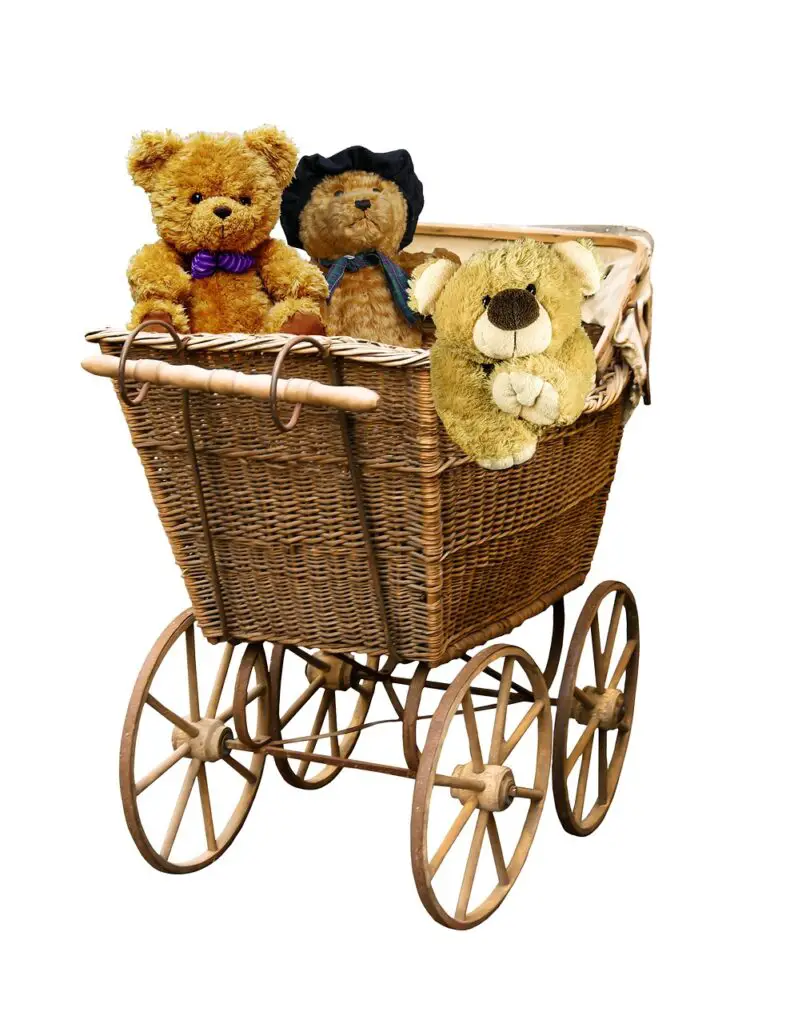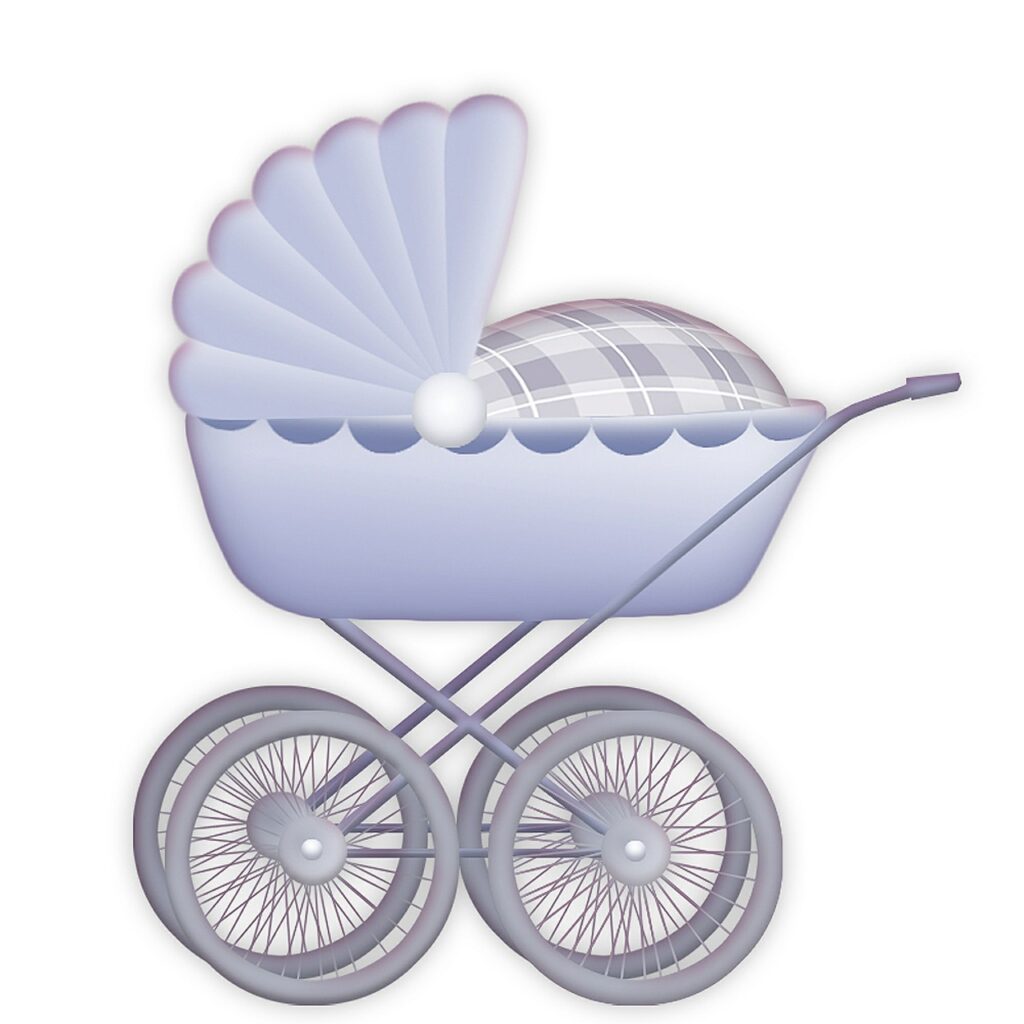
When it comes to traveling with your little one, one question that often arises is whether or not to bring along a stroller. This is particularly true for parents with children under the age of 5. While navigating airports, crowded streets, and tourist attractions may seem daunting with a stroller in tow, it can actually be a lifesaver in many situations. In this article, we’ll explore the benefits of bringing a stroller for your child under 5 when traveling, helping you make an informed decision that will make your journey more enjoyable for both you and your little adventurer.

Benefits of Bringing a Stroller
Convenience and Ease of Transport
Bringing a stroller when traveling with your child under 5 can provide numerous benefits. One of the most obvious advantages is the convenience and ease of transport it offers. Instead of having to carry your child all the time, a stroller allows you to push them around, saving you from the physical strain. Whether you’re exploring a new city, navigating through crowded airports, or strolling through a theme park, a stroller can make your travel experience much smoother and more enjoyable.
Comfort for the Child
Another significant benefit of bringing a stroller is the comfort it provides for your child. Traveling can be tiring, and having a stroller allows your little one to rest and relax when needed. It offers them a familiar and secure space where they can take a break from walking or simply observe their surroundings. Not only does this ensure their physical well-being, but it also helps to keep them calm and content during your travels.
Storage Space for Essentials
Having a stroller also provides ample storage space for all the essential items you may need during your journey. From diapers and wipes to snacks and extra clothing, a stroller allows you to carry everything conveniently. This frees up your hands and prevents you from having to wear a bulky backpack or carry multiple bags. Plus, most strollers come with built-in storage compartments or baskets, making it easy to organize and access your belongings while on the go.
Rest and Nap Opportunities
Traveling can be exhausting for young children, especially when encountering new environments and different time zones. Bringing a stroller ensures that your child has the opportunity for rest and nap breaks throughout the day. The comfortable seating and reclining options in many strollers provide a cozy spot for little ones to recharge their energy. This way, they can experience the wonders of travel while still maintaining their routine and getting the sleep they need.
Considerations for Traveling with a Stroller
Airport and Transportation Accessibility
Before deciding to bring a stroller, it’s essential to consider the accessibility in airports and other modes of transportation you’ll be using. Some airports may have specific rules and regulations regarding the use of strollers, while others may offer designated stroller lanes or storage areas. Similarly, certain modes of transportation such as buses, trains, or boats may have limited space for strollers or require them to be folded. Researching and planning ahead will help ensure a smooth travel experience without any unexpected complications.
Weight and Size Limitations
When choosing a stroller for your travels, it’s important to consider weight and size limitations. Some airlines and transportation services have restrictions on the dimensions and weight of strollers that are allowed. Opting for a lightweight and compact stroller can help you avoid any issues and make it easier to maneuver through crowded areas. Additionally, consider the weight of the stroller itself as you may have to lift it onto escalators or carry it up stairs in some locations.
Terrain and Destination Factors
The type of terrain and the destination you’ll be visiting are crucial factors to consider when deciding to bring a stroller. If you’re planning on exploring cities with smooth pavements and sidewalks, a regular stroller would be suitable. However, if you’re traveling to more rugged or off-road destinations, such as hiking trails or sandy beaches, you may need a stroller specifically designed for rougher terrains. Evaluating the conditions of your travel destinations will help determine whether a stroller is practical and necessary.
Security and Safety Concerns
While a stroller can offer convenience and comfort, it’s also important to consider security and safety concerns. When traveling through busy areas or crowded tourist attractions, it can be difficult to keep an eye on your belongings. Ensure that your stroller has a safety harness to secure your child and a lock or strap mechanism to prevent theft. Additionally, be cautious when navigating through uneven surfaces or across slopes to avoid any tipping hazards. Always prioritize the safety of your child when using a stroller.
Alternatives to Bringing a Stroller
Baby Carrier or Sling
If you’re unsure about bringing a stroller or if your travel plans involve more adventurous activities, a baby carrier or sling can be a suitable alternative. These allow you to carry your child close to you while keeping your hands free. Baby carriers are especially useful in situations where a stroller may be impractical or inaccessible, such as hiking trails or navigating through crowded markets.
Foldable Travel Strollers
For those who still want the convenience of a stroller but have limited space, foldable travel strollers are an excellent option. These strollers are designed to be compact and easily foldable, making them ideal for travel. They can fit into overhead compartments on airplanes or be stowed away in the trunk of a car with ease. Additionally, many foldable travel strollers offer similar features and comfort as regular strollers, providing a versatile solution for parents on the go.
Renting or Borrowing a Stroller
If you’re hesitant to bring your own stroller, another option is to rent or borrow one at your travel destination. Many cities and tourist destinations offer stroller rental services, allowing you to have a stroller for the duration of your stay without the hassle of bringing your own. This can be particularly beneficial if your travel plans involve limited or occasional use of a stroller. Check with local rental companies or accommodations to see if this service is available.
Using a Lightweight Wagon
In certain situations, such as trips to the beach or picnics in the park, using a lightweight wagon can be a fun and practical alternative to a stroller. Wagons provide a spacious and secure area for your child to sit or even lie down comfortably. They also offer extra storage space for beach toys, snacks, and other essentials. Consider using a wagon if your travel plans include outdoor activities where a stroller may not be suitable.
Choosing the Right Stroller
Size and Weight
When choosing a stroller for your travels, consider the size and weight of the stroller. Opting for a lightweight and compact stroller will make it easier to handle, carry, and maneuver through tight spaces. Additionally, ensure that the stroller can be folded easily and fits within the size limitations set by airlines or transportation services. A stroller that is too large or heavy may become a burden during your travels.
Versatility and Features
Evaluate the versatility and features of the stroller to meet your specific travel needs. Look for a stroller that offers adjustable seating positions, a canopy for sun protection, and sufficient storage compartments. Consider features such as a one-handed folding mechanism or compatibility with infant car seats for added convenience. Versatile strollers that can adapt to different terrains or transition from city streets to off-road paths will provide you with more flexibility during your travels.
Durability and Quality
When investing in a stroller for travel, durability and quality are essential factors to consider. Traveling can subject your stroller to various conditions, including rough handling in airports or navigating bumpy surfaces. Ensure that the stroller is made of durable materials that can withstand these challenges. Reading reviews and seeking recommendations from other travelers can help you assess the quality and durability of different stroller brands and models.
Storage and Folding Mechanism
Lastly, consider the storage and folding mechanism of the stroller. Look for a stroller that offers ample storage space for your essentials and has a user-friendly folding mechanism that allows for easy and quick folding. Many strollers come with compact folding options that fit conveniently into overhead bins or tight spaces. Prioritize a folding mechanism that can be executed with minimal effort and doesn’t require excessive disassembly or complicated steps.
Tips for Traveling with a Stroller
Check Stroller Policies and Restrictions
Before embarking on your journey, make sure to check the stroller policies and restrictions of your airlines and intended transportation services. Some airlines may require you to check in your stroller at the gate or provide specific instructions on stroller dimensions and weight. Being aware of these policies ahead of time will help you avoid any last-minute complications and ensure a smooth travel experience.
Prepare for Security Screening Procedures
Security screening procedures at airports and other travel hubs can be challenging when you have a stroller. Familiarize yourself with the security requirements and prepare accordingly. Be ready to fold your stroller if necessary, and ensure that any removable parts or accessories are easily accessible. Arriving early at the airport can also provide you with sufficient time to navigate security checkpoints without rushing.
Pack Stroller Accessories and Essentials
To make the most of your stroller while traveling, pack essential accessories to enhance your child’s comfort and safety. Items such as a sunshade or rain cover can protect your child from harsh weather conditions. Additionally, consider bringing a stroller organizer to keep essential items within reach, such as bottles, snacks, or toys. Packing spare parts and tools specific to your stroller model can also come in handy in case of any minor repairs or adjustments.
Navigate Crowded Areas and Narrow Spaces
When traveling with a stroller, it’s important to be mindful of crowded areas and narrow spaces. Maneuvering through crowded streets, markets, or tourist attractions can be challenging, especially during peak travel seasons. Plan your routes in advance, explore quieter streets or alternative paths, and always be considerate of other pedestrians. Being aware of your surroundings will help you navigate more efficiently and ensure a positive experience for both you and those around you.
Pros and Cons of Traveling without a Stroller
Pros of Not Bringing a Stroller
Traveling without a stroller can have some advantages depending on your travel plans and circumstances. One significant benefit is the freedom of mobility and flexibility it offers. Without a stroller, you can easily navigate through crowded places, use public transportation without limitations, and explore destinations that may not be stroller-friendly. Additionally, not having a stroller means you have less to carry or transport, making your overall travel experience lighter and more streamlined.
Cons of Not Bringing a Stroller
However, there are also drawbacks to not bringing a stroller when traveling with a child under 5. The most obvious downside is the physical strain it may impose on you. Carrying your child for extended periods can be tiring, especially if they tend to tire quickly or have difficulty walking longer distances. Additionally, not having a stroller means you’ll have to rely on other means to provide your child with resting breaks or napping opportunities, which may disrupt their routine or make them less comfortable throughout the day.

Age and Development Considerations
Infants and Newborns
For parents traveling with infants and newborns, a stroller can be highly beneficial. Infants require constant attention and care, and having a stroller allows you to provide a safe and comfortable environment for them. Strollers with fully reclining options are ideal for infants, as they can lie down and rest during the journey. However, it’s essential to consider the age and weight restrictions of the stroller to ensure your child’s safety.
Toddlers and Young Children
Toddlers and young children can greatly benefit from the convenience and comfort of a stroller during travels. While they may be able to walk on their own, young children often tire easily and may become overwhelmed by crowded places. A stroller gives them the opportunity to rest, nap, or observe their surroundings while maintaining their engagement with the travel experience. Additionally, having a stroller ensures that you can keep them safe and secure in busy or unfamiliar environments.
Special Needs Children
If you’re traveling with a special needs child, a stroller can offer invaluable support and comfort. Specialized strollers designed for children with disabilities provide enhanced stability and postural support, allowing them to participate in travel activities without limitations. These strollers often have additional features such as adjustable seating positions, headrests, and harnesses to ensure maximum comfort and safety. Consult with medical professionals or specialists to determine the best stroller options for your special needs child.
Factors to Consider by Travel Destination
Urban and City Travel
When traveling to urban destinations, a stroller can be highly convenient. Cities often have well-maintained sidewalks and accessible public transportation, making it easier to navigate with a stroller. Strollers are excellent for exploring museums, shopping districts, or parks within cities. However, it’s important to be aware of the terrain and potential crowds in popular urban areas. Consider a lightweight and compact stroller that can easily maneuver through busy streets and narrow corridors.
Nature and Adventure Travel
Traveling to nature or adventure destinations may require more consideration when deciding on a stroller. Off-road terrains, such as hiking trails or nature reserves, may not be suitable for regular strollers. In these cases, specialized strollers designed for rough terrains can be a great investment. These strollers often have sturdier wheels, suspension systems, and durable construction to withstand outdoor conditions. Research the specific requirements of your nature or adventure destination to make an informed decision.
Theme Park and Resort Travel
Strollers are highly recommended for theme park and resort travel, especially when visiting with young children. Theme parks can be overwhelming and involve extensive walking and standing in line. Having a stroller allows your child to rest and nap comfortably, making the overall experience more enjoyable for both of you. Consider lightweight and compact strollers for theme parks due to their maneuverability and ease of storage on rides and attractions.
Cultural and Historical Travel
Cultural and historical travel destinations may vary in terms of stroller accessibility. While many museums and historical sites are stroller-friendly, some may have restrictions on stroller usage due to the preservation of artifacts or architectural limitations. Research the specific cultural and historical attractions you plan to visit to determine whether strollers are permitted or if alternative options are available, such as baby carriers or renting on-site strollers.
Personal Preference and Lifestyle Factors
Parent’s Physical Abilities
A parent’s physical abilities and limitations should be considered when deciding to bring a stroller. If you have any pre-existing conditions or physical challenges that may make pushing or lifting a stroller difficult, alternative options such as baby carriers or lightweight wagons may be more suitable. Prioritize your own comfort and well-being, as this will ultimately impact the quality of your travel experience.
Family Travel Habits and Routines
Your family’s travel habits and routines should also factor into your decision-making process. If your family tends to travel at a slower pace, preferring leisurely strolls and frequent breaks, a stroller can be an essential component of your routine. However, if your family is more adventurous and active, alternative options that offer more flexibility and freedom of movement may be preferable.
Budget and Cost Considerations
Budget considerations play a significant role when deciding to bring a stroller. Strollers can be a significant investment, especially when considering specialized options or high-quality models. If you’re hesitant to spend a substantial amount on a stroller, renting or borrowing one at your destination may be a more cost-effective solution. Evaluate your budget and weigh the long-term benefits against the initial cost to make an informed decision.
Child’s Preferences and Needs
Ultimately, your child’s preferences and needs are paramount in determining whether to bring a stroller. Consider your child’s temperament, energy levels, and comfort preferences. If your child enjoys being carried or tends to sleep easily in a stroller, bringing one will ensure their well-being and happiness during your travels. However, if your child strongly dislikes being confined or prefers to walk independently, alternative options such as baby carriers may be more suitable.
Final Thoughts and Recommendations
When deciding whether to bring a stroller for your child under 5 when traveling, it’s crucial to assess your travel needs and circumstances. Evaluate the benefits and considerations outlined in this article to make an informed decision that aligns with your family’s travel style. Consider the alternatives to traditional strollers, such as baby carriers, foldable travel strollers, renting, or using lightweight wagons. Additionally, take into account personal factors, such as physical abilities, family routines, budget, and your child’s preferences. By carefully considering these aspects, you can make a decision that works best for your family and ensures a memorable travel experience for everyone involved.



